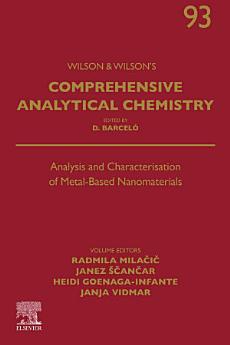Analysis and Characterisation of Metal-Based Nanomaterials
About this ebook
About the author
Her scientific career of over twenty years of experience on elemental and speciation analysis started with the award of a PhD from Oviedo University, Spain. She joined LGC in 2003. She is the Principal Scientist and Team Leader of the Inorganic Analysis team at the National Measurement Laboratory hosted at LGC. Her team includes fifteenth PhDs and postgraduate scientists with expertise across trace element speciation analysis, metallomics research, the characterisation of nanomaterials, high accuracy isotope ratio analysis, quantitative elemental bio-imaging and the characterisation of “speciated reference materials and standards. Heidi is the UK representative at the Inorganic Analysis Working Group of the CCQM, the international Consultative Committee for Metrology in Chemistry. She is the chair of the editorial board of the Journal of Analytical Atomic Spectrometry and, a member of the international advisory boards of Analytical and Bioanalytical Chemistry and the RSC journal Metallomics. She is the LGC representative at ISO TC 24 (Particle characterisation). She is the EURAMET representative for inorganic analysis at the CCQM Key Comparison Working Group. She has acted as the coordinator of the EU EUROPEAN Metrology Research Proposal (EMRP) NanoChop “Chemical, Optical and Biological characterisation of nanomaterials in biological samples and as work package leader in other several EU projects. She is the leading author of over a 120 scientific research papers and 6 book chapters. She is a Science Fellow of LGC. Heidi was recently awarded the 2020 Lester W. Strock Award from SAS.







